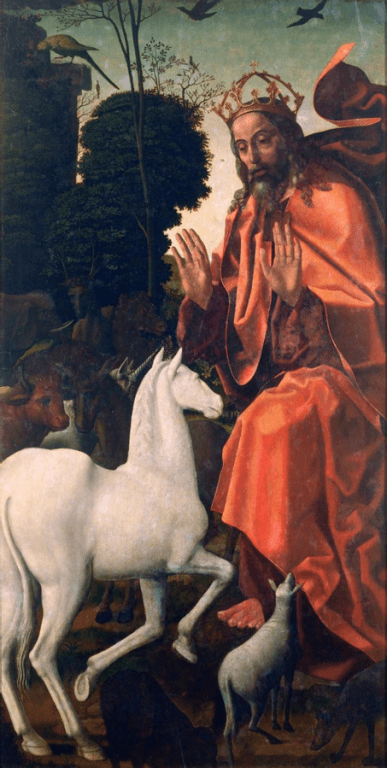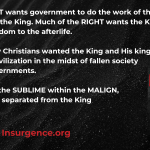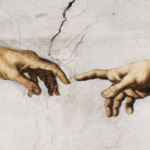
How often have you and your church prayed for the care of creation? If you can’t recall ever praying for the care of creation, today would be a good day to start. September 1st marks the beginning of the Season of Creation in the church calendar with the World Day of Prayer for the Care of Creation. Before delving deeper into this subject, let’s further embed this day and month in its liturgical and salvation-historical context.
It is worth noting that the Season of Creation extends for approximately a month’s time, as it concludes on October 4th with the Feast of St. Francis. St. Francis is hailed in various ecclesial traditions as the patron saint of ecology. It is fitting that St. Francis’s namesake, Pope Francis, declared in August 2015 that September 1st would be the World Day of Prayer for the Care of Creation, an occasion celebrated by the Orthodox Church since 1989. Earlier in the same year, he published his encyclical “Laudato Si,” which is dedicated to “On Care for Our Common Home.”
It is also fitting that the Season of Creation begins in September, which is part of the harvest season. As we move toward the end of the calendar year in Ordinary Time, we also consider how best to prepare for the Lord’s return at the end of the ages. Faithful service in this life, which includes the Genesis mandate at the beginning of the biblical narrative to have dominion as in care for the creation, is certainly part of what is entailed to prepare for Jesus’ return.
Our dominion in creation is subject to the Lord’s sovereign care. Thus, we cannot do as we wish with the creaturely realm but must care for it wisely and moderately as tenants in God’s vineyard. As Karl Barth remarked, we do not have ultimate dominion over the creation. Humans have dominion in the creation. God alone has ultimate dominion over the creation. When we separate our lordship in the creation from consideration of God’s lordship over all, including humanity, we so readily move toward subjecting the creation to idolatrous and abusive control.[1] Thus, we must be very careful not to treat spirituality in a completely otherworldly manner that limits Jesus’ lordship over us simply to our hearts and not extending to what we do with our heads, hands, and feet. Such otherworldly separation exists for those who find praying for the care of creation odd and irrelevant.
Such otherworldly separation manifests itself in various other ways. It can easily lead to the separation of science and religion, or nature and grace, whereby we discount reason or surrender it to autonomous secular control. Hans Urs von Balthasar addresses this subject, asserting that there is no place for the “dialectical opposition between ‘knowledge’ and ‘faith.’” “God’s sovereign freedom” does not fall “under the judgment of human reason.” The worldly order and reason does not necessitate or make possible the cross. Rather, “the light of the Cross makes worldly being intelligible,” as it shines a light on God’s imprint of love throughout the whole of creation.[2] Whenever such integration involving the harmonious relation of nature and grace in keeping with knowledge and faith is lost, Balthasar writes,
worldly being will necessarily fall under the sign of the constant dominion of “knowledge” and thus science, technology, and cybernetics will overpower and suffocate the forces of love within the world. The result will be a world without women, without children, without reverence for the form of love in poverty and humility, a world in which everything is viewed solely in terms of power or profit-margin, in which everything that is disinterested and gratuitous and useless is despised, persecuted, and wiped out, and even art is forced to wear the mask and features of technique.[3]
From another angle, such separation leads to championing faith and discounting science, whereby the latter simply is perceived as another version of fake news. While there is good reason to be wary of scientific exploits that are bound up with efficiency and technique, economic profit margins and political gains that undermine human flourishing, the solution is not to equate scientific exploration itself with fake news. Those who employ “fake news” rhetoric often do so for the very same reason—efficiency and technique, economic profit margins and political short-term gains that do not promote the long-term well-being of our planet and the human race.
So, let us pray for the creation today. Let’s pray for wisdom in providing holistic and strategic care as humans in stewarding well the creation as tenants in God’s vineyard. Let’s pray for sacrificial love and prudence. Let’s pray against greed and waste. Let’s pray against the divorce of grace and nature, against the divorce of faith and knowledge, against the divorce of faith and science that involves disrespect and dismisses discourse that cherishes the distinctive contributions of each domain. Otherwise, the current ecological crisis which affects the most vulnerable human populations and other life forms will continue unabated.
Contrary to what is often assumed and argued, orthodox Christianity was not responsible historically for the current ecological crisis (in contrast to Lynn White’s claim, see footnote 1). However, if we do nothing strategic and substantial to confront the environmental devastation involving pollution and global climate change, those who claim the orthodox or biblical label today will be held as liable for the growing ecological crisis.[4] So, as we rest from our labors with Labor Day upon us, let us recall how God rested and looked upon all he created as good, indeed as very good (Genesis 1:31). Let’s pray today during this Sabbath rest and throughout this liturgical season for the flourishing of creation and act accordingly. May we realize that if we truly love the Creator, we will love the creation, protecting and nurturing our world until Christ, the high priest of creation, returns to reign from earth. With these points in mind, I end this reflection on the World Day of Prayer for the Care of Creation with the closing words of Pope Francis’ prayer in Laudato Si:
God of love, show us our place in this world
as channels of your love
for all the creatures of this earth,
for not one of them is forgotten in your sight.
Enlighten those who possess power and money
that they may avoid the sin of indifference,
that they may love the common good, advance the weak,
and care for this world in which we live.
The poor and the earth are crying out.
O Lord, seize us with your power and light,
help us to protect all life,
to prepare for a better future,
for the coming of your Kingdom
of justice, peace, love and beauty.
Praise be to you!
Amen.
_______________
[1]Peter Harrison has critiqued Lynn White’s famous claim that orthodox Christianity is at the ideological root of the current ecological crisis. See Peter Harrison, “Subduing the Earth: Genesis 1, Early Modern Science, and the Exploitation of Nature,” The Journal of Religion (January 1999): 86-109. See also Lynn White, Jr., “The Historical Roots of Our Ecological Crisis,” Science 155 (1967): 1203-7. One of the points Harrison makes is that the rendering of “dominion” as total mastery of the world so popular today does not arise from ancient and medieval (orthodox) readings of the biblical narrative, but from early modern interpretations: “In the seventeenth century we find practitioners of the new sciences, preachers of the virtues of agriculture and husbandry, advocates of colonization, and even gardeners explicitly legitimating their engagement with nature by appeals to the text of Genesis. The rise of modern science, the mastery of the world that it enabled, and the catastrophic consequences for the natural environment that ensued, were intimately related to new readings of the seminal Genesis text, ‘Have dominion’” (page 96; italics added).
[2]Hans Urs von Balthasar, Love Alone Is Credible, trans. D. C. Schindler (San Francisco: Ignatius Press, 2004), pages 141-142.
[3]Balthasar, Love Alone Is Credible, 142.
[4]For an evangelical treatment of global climate change, see my article, “Thinking Globally on Global Climate Change: An Evangelical Reflection.” It was published in the Oregon State Bar, Sustainable Future Section, Summer of 2015; https://sustainablefuture.osbar.org/files/2015/08/2q15.pdf.












